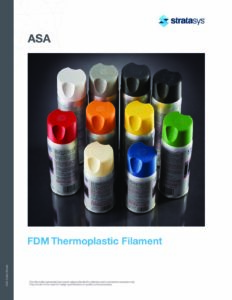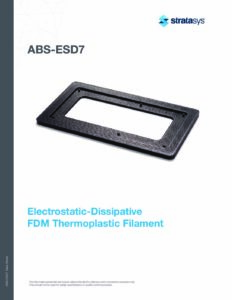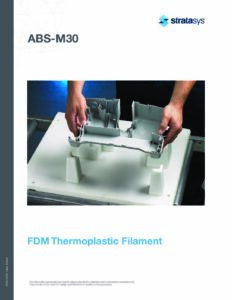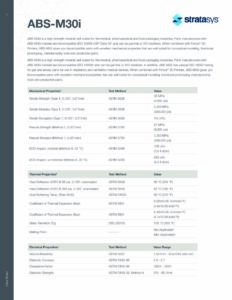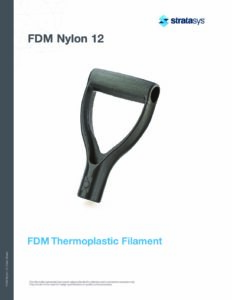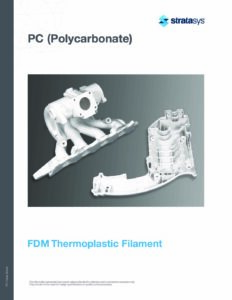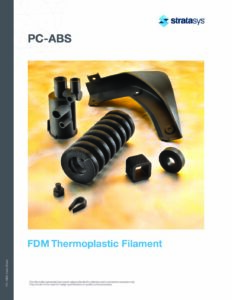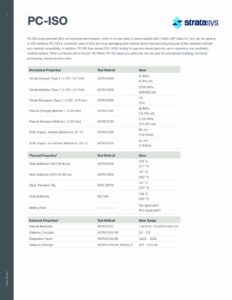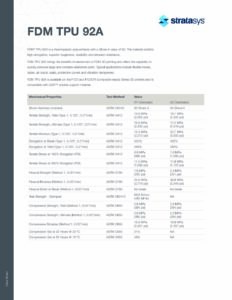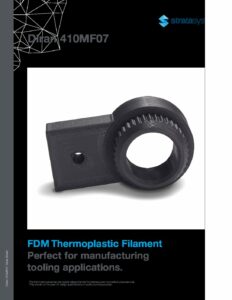The Fortus 380mc and F370 3D printers are designed to build parts using a variety of production-grade thermoplastic FDM® materials, including the latest ASA material. ASA gives you all the benefits of ABS-M30 plus UV stability and better aesthetics. Our Fortus 380mc and F370 machines are licensed to run them all.
Click on a picture to see the complete specification.
ASA
In addition to being slightly stronger than ABS-M30, ASA has greater resistance to UV and better aesthetics. ASA is an excellent choice for parts exposed to the elements. Available colors are light grey, white, ivory, black, blue, yellow, green, and red.
ABS-ESD7
ABS-ESD7 is a good material for use around static-sensitive products. Its uses include electronic jigs, fixtures, and mounts.
ABS-M30
ABS-M30 is stronger than standard ABS and is a good all-around material choice that boasts excellent tensile, impact, and flexural strength. It is available in black or white.
ABS-M30i
ABS-M30i is bio-compatible and suitable for medical, pharmaceutical, and food packaging.
Available upon request.
Nylon 12
Nylon is a tough material that has good resistance to fatigue. This makes it a great choice for snap fit parts.
PC
PC has exceptional mechanical properties and heat resistance. It is a good choice for parts that will be exposed to higher mechanical stresses.
PC-ABS
PC-ABS is a high-impact engineering thermoplastic ideal for functional prototyping, tooling, and low-volume manufacturing. PC-ABS also delivers excellent feature definition and surface finish.
PC-ISO
PC-ISO is bio-compatible with greater strength and thermal properties than ABS-M30. It is a good choice for parts or tooling used in the food, drug, and medical industries.
Available upon request.

